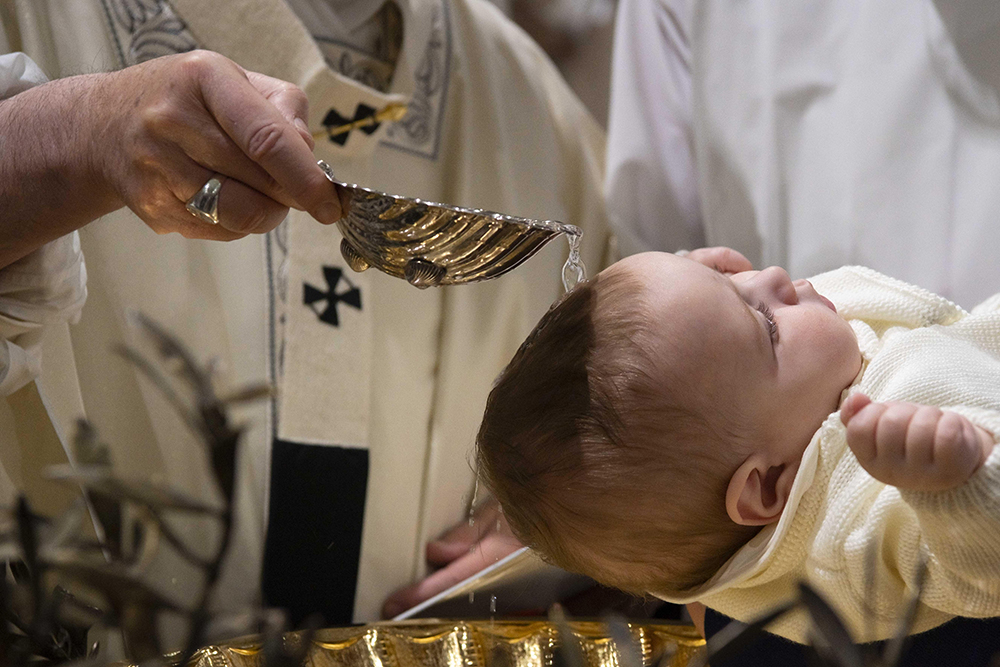The Church’s Code of Canon Law states very clearly about individuals’ rights to receive the sacraments. “Sacred ministers cannot refuse the sacraments to those who ask for them at appropriate times, are properly disposed and are not prohibited by law from receiving them. Pastors of souls and the rest of the Christian faithful … have the duty to see that those who seek the sacraments are prepared to receive them by the necessary evangelization and catechetical formation” (Canon 843). Therefore, whether a child’s parent is married has little to do with presenting the child for baptism.
What must be considered, however, is whether the child will take subsequent steps in the faith after taking the first. The Catechism of the Catholic Church reminds us, “Baptism incorporates us into the Church” (No. 1267). If a baptized child will not grow with other members of the Church, she or he gains the sacrament’s remission of sin, but misses every other blessing baptism offers. Thus Church law cautions that for the licit baptism of an infant, it is necessary, “there must be a founded hope that the infant will be brought up in the Catholic religion; if such a hope is altogether lacking, the baptism is to be delayed … after the parents have been advised of the reason” (Canon #868).

